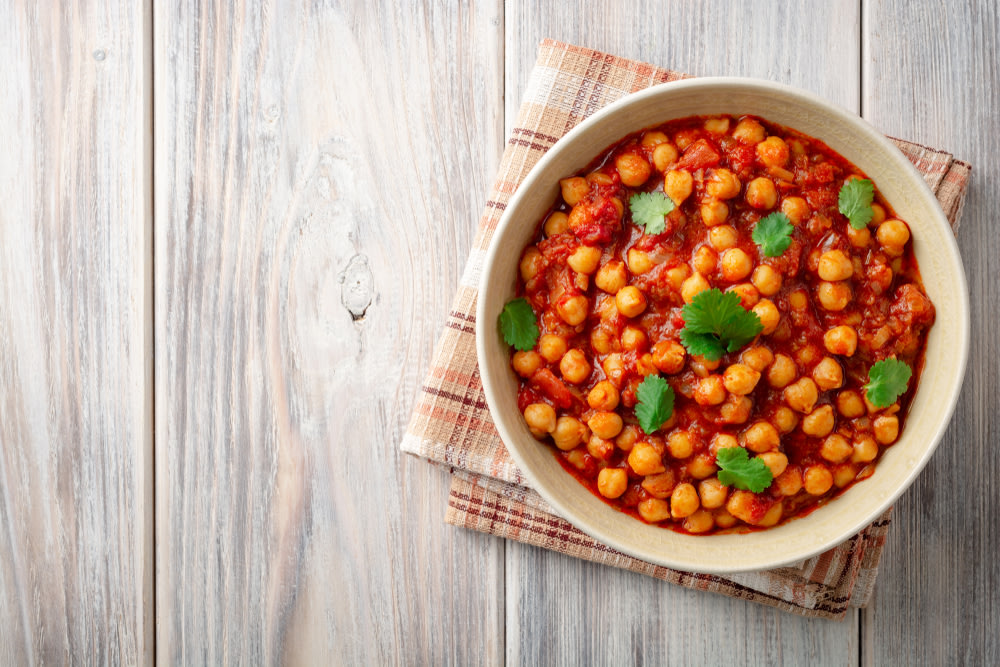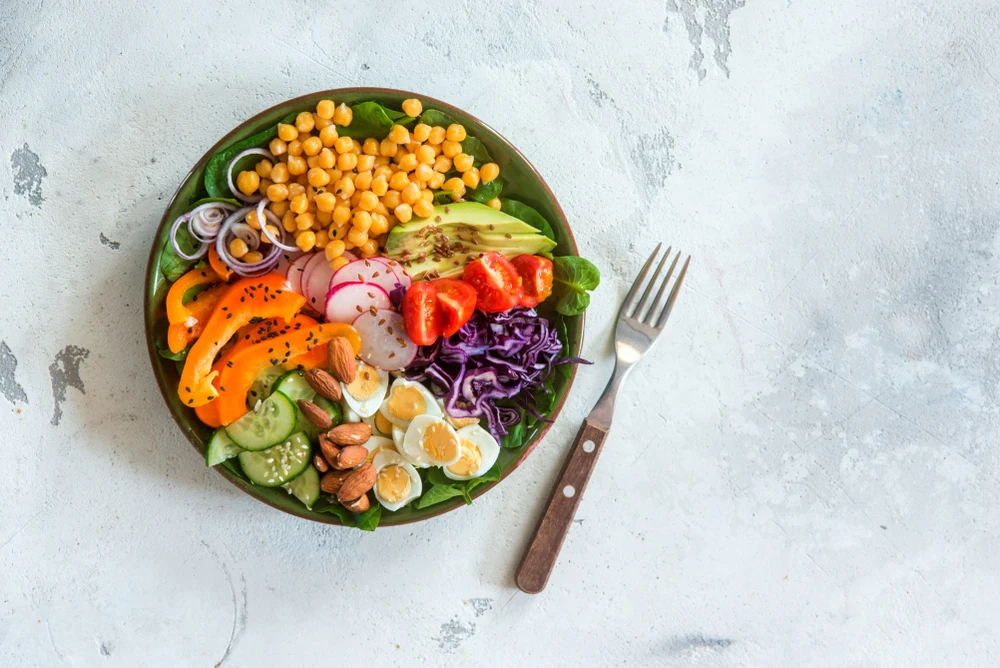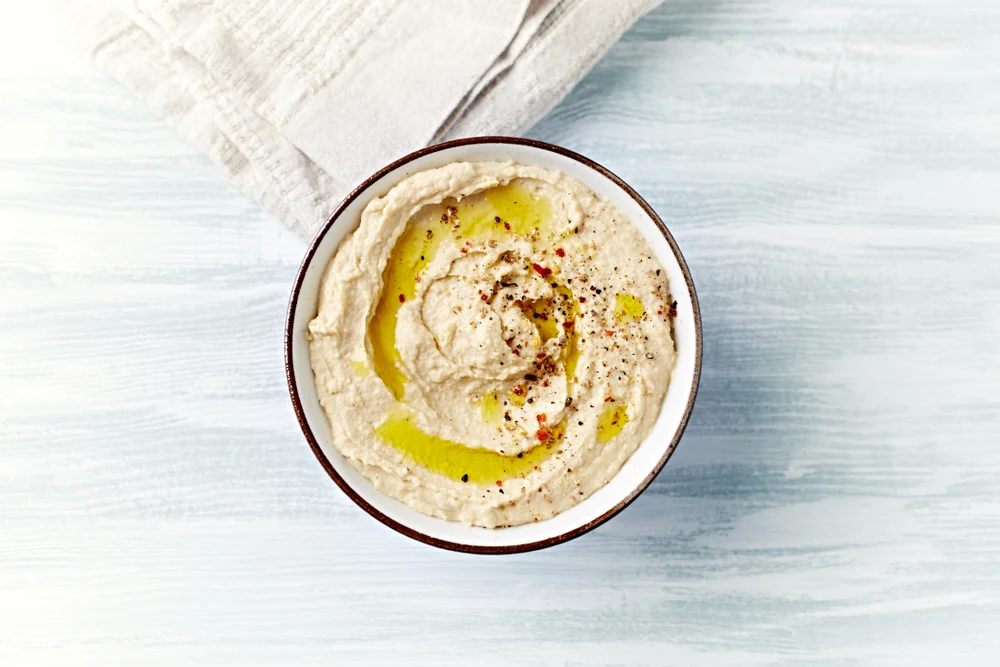Is Now The Time To Try Being Flexitarian?

April 14, 2020

Have you considered changing your diet to eat more plant-based foods?
You’re not alone. Millions of people around the world don’t include meat in their diet, and it’s a food trend that is gaining popularity.
Trying a vegetarian diet is a good way to see if it’s a style of eating that suits you, but you don’t have to adopt an all-or-nothing approach. That’s where a flexitarian diet might be more suitable.
What is a flexitarian diet?
The word “flexitarian” is made up of two words: “flexible” and “vegetarian”.
The meaning of flexitarian is exactly what is implied — having a diet that is mainly vegetarian but occasionally eating meat, fish, or other animal products.
Another way to describe this style of eating would be “semi-vegetarian” with the flexibility to eat meat from time to time. Some people adopt a style of eating where they are vegetarian on a set weekly schedule, while others might have a less rigid approach, having meat only on special occasions or when eating food from a restaurant.
Either way, flexibility is key.

Why choose a flexitarian approach to food?
For some people, the idea of fully committing to never eating meat might seem too restrictive.
But taking a flexible approach and eating mostly plant-based foods can be more achievable for some people.
There may also be some health benefits to reducing meat intake too.
A 2015 study by the Federal Commission for Nutrition, Switzerland, found that the long-term consumption of increasing amounts of red meat (particularly processed meat) is associated with a range of health conditions, including type 2 diabetes and cardiovascular disease.
However, a 2012 paper by Queen’s University Belfast, Northern Ireland, found that a plant-based diet with a small intake of red meat, fish and dairy may have a significant positive impact on health.
Adopting a flexitarian diet may be one way to benefit your health, without the need to eliminate meat altogether to see these improvements.
Another benefit of choosing a flexitarian diet is that you can incorporate pulses and legumes into your meals as a source of protein. Whether using canned or dried varieties, pulses and legumes are very versatile and have a long shelf life, making them a convenient option for protein-packed plant-based meals.
Meat-free days of the week
One way to introduce a flexitarian approach might be to try skipping meat for a designated day, or days, of the week.
Many people around the world embrace “Meat-free Mondays” and eat only vegetarian meals for that day.
Other flexitarians eat plant-based meals during the week, and may eat meat only on weekends, or a few times a month.
It may require a bit of trial and error to find out which flexitarian approach suits you, but it’s also important to ensure you have a healthy balanced diet at all times. Eating a wide variety of fruit and vegetables, with lots of whole foods is always a good foundation.
Plant-based sources of protein
Just because you’re trying to eat less meat doesn’t mean you have to miss out on protein.
Protein is important for your day to day activities, as well as training. But you can still get the protein you need to build muscle from plant-based foods.
There are lots of great sources of plant-based protein for flexitarians.

Chickpeas/garbanzo beans
Chickpeas (also known as garbanzo beans) are a great staple, and you can keep canned or dried varieties in your pantry.
They can be used to make hummus, curries, falafel and more!
Chickpeas are a good source of protein, and can provide your diet with fibre. They also contain minerals including calcium, iron and magnesium.
Lentils
Lentils come in a few different varieties — red, green, yellow, brown, black and puy — and they are a great source of plant-based protein.
They’re a really versatile plant protein, and you can use them in soups, salads, curries and pasta dishes.
Lentils are pulses and they pack a serious nutritional punch — they’re a good source of fibre, vitamin B, iron and phosphorus.
Tofu
Tofu is made from soybean milk — it’s actually a curd, made in a similar way to cheese.
It is commonly used in Asian cuisines and can be made into several different textures, ranging from very firm to silken.
It’s high in protein, and a great source of vitamins and minerals including calcium, magnesium and iron.
Tempeh
Tempeh is also made using soy, but differs in texture.
It’s made with fermented soybeans, which are then pressed into different shapes or blocks. Because it’s a fermented food, tempeh is a prebiotic, which may support gut health.
Tempeh contains more protein than tofu and is very nutritious, containing iron, calcium, magnesium and other nutrients. Tempeh, along with tofu, contain all 9 essential amino acids. These can’t be made by the body, so must come from food.
Find the style of eating that suits you
If you’re interested in trying a flexitarian diet, it might take a bit of trial and error to discover a balanced approach that fits with your lifestyle.
Regardless of your approach to diet, it’s important to meet all your nutritional needs, ensuring you have a wide variety of wholesome foods that give you enough energy — and protein — to get through your day, including your workouts.
You should also make sure the way you eat is healthy, balanced and sustainable in the long term.

A more empowered you starts with Sweat, and our editorial team is here to bring you the latest fitness tips, trainer recommendations, wellbeing news, nutritional advice, nourishing recipes and free workouts.
* Disclaimer: This blog post is not intended to replace the advice of a medical professional. The above information should not be used to diagnose, treat, or prevent any disease or medical condition. Please consult your doctor before making any changes to your diet, sleep methods, daily activity, or fitness routine. Sweat assumes no responsibility for any personal injury or damage sustained by any recommendations, opinions, or advice given in this article.
Wellbeing